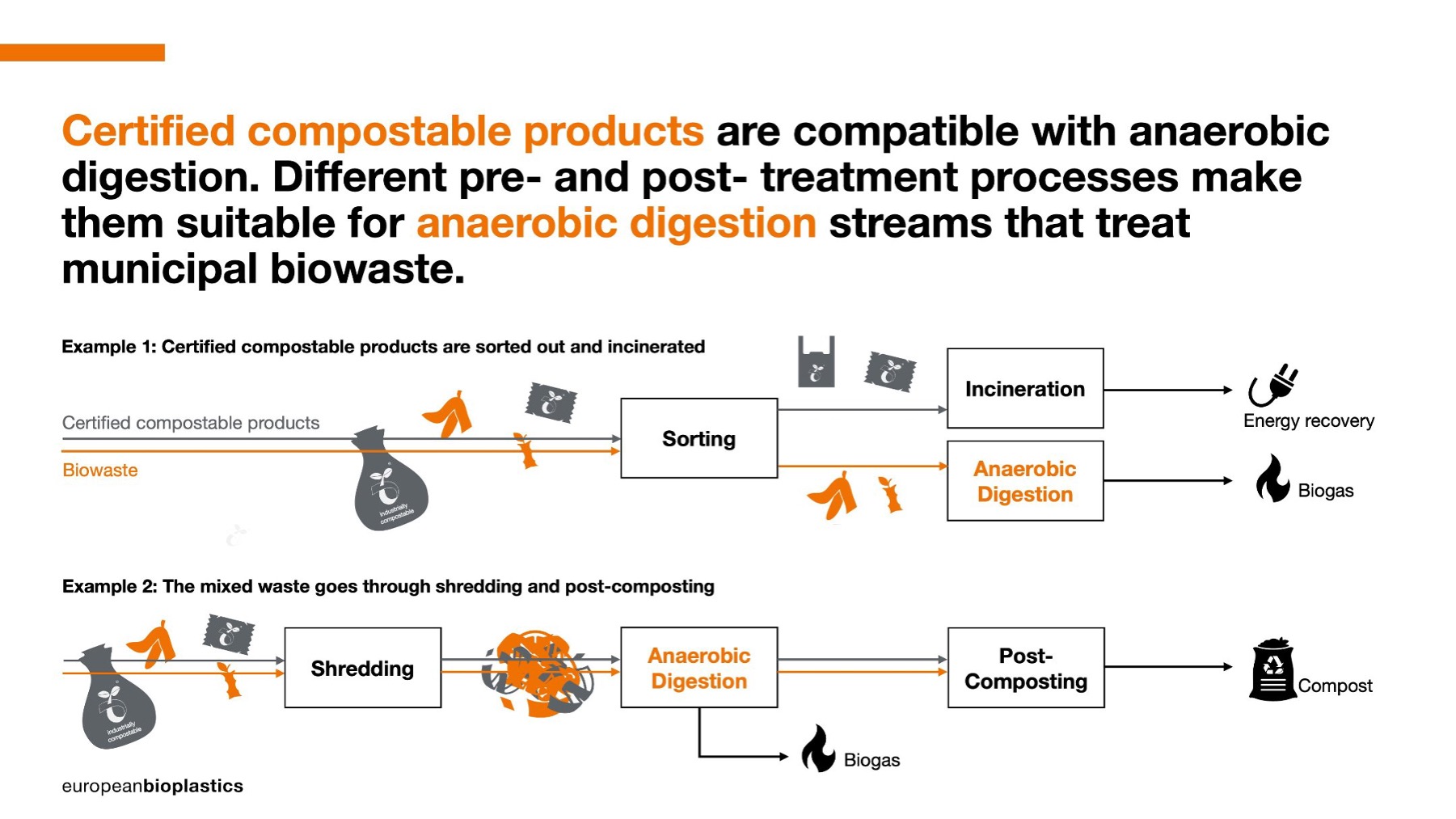European Bioplastics believes that certified compostable plastics are essential in achieving a circular economy and calls for the recognition of their important role within municipal biowaste management:
- They are designed for organic recycling.
- They help to safeguard separate waste streams.
- They help to increase the collection of biowaste.
- They help to ensure the quality of digestate and compost.
- They are suitable for anaerobic digestion streams that treat municipal biowaste and include different pre- and post-treatment processes.

Certified compostable products support the separate collection of municipal biowaste, a practice essential for high-quality organic recycling, which includes both industrial composting and anaerobic digestion. By offering consumers an easy solution to separate their household biowaste, they increase the volume and quality of valuable compost that is generated via industrial composting. In case the waste is processed via anaerobic digestion, a larger amount of separately collected biowaste can additionally help to increase the share of biogas production.
A range of Anaerobic Digestion technologies and configurations exist throughout Europe, which are biomass-specific. Municipal biowaste usually consists of a mixture of organic kitchen waste and (garden/yard) green waste. Given that the ligneous part of green waste is difficult to convert to biogas in anaerobic digestion, combinations of an anaerobic and aerobic steps are deemed most suitable for processing municipal biowaste. Via this combination, the maximum value is retrieved from biowaste: biogas as a source of energy, and compost as a fertiliser or soil-improver.
Find out more about our position on Anaerobic Digestion at www.european-bioplastics.org/anaerobic-digestion-of-certified-compostable-products/